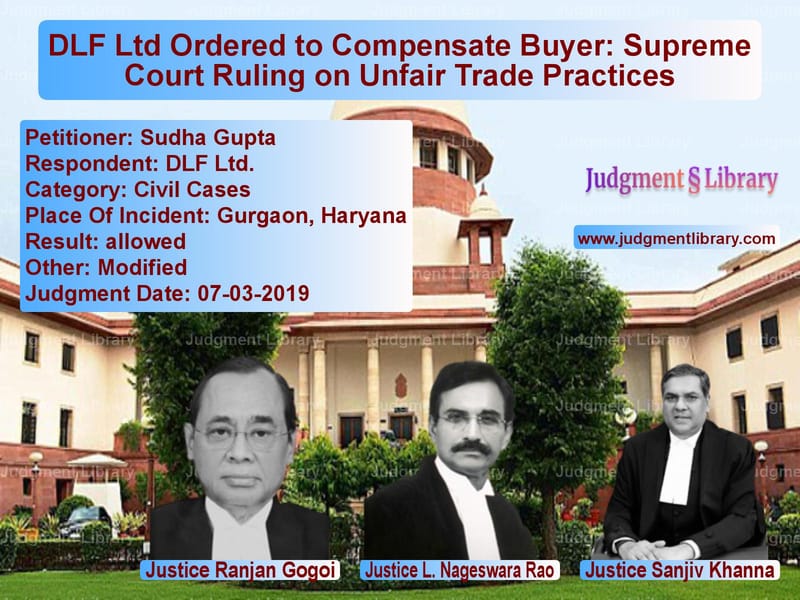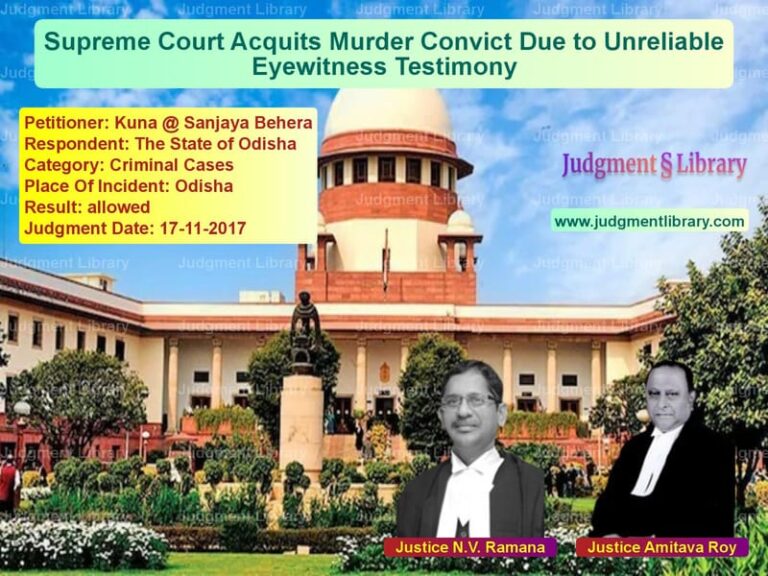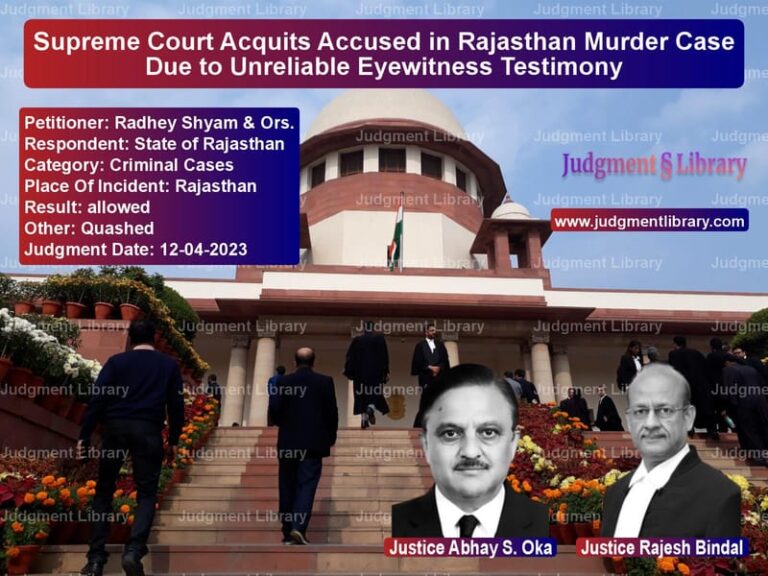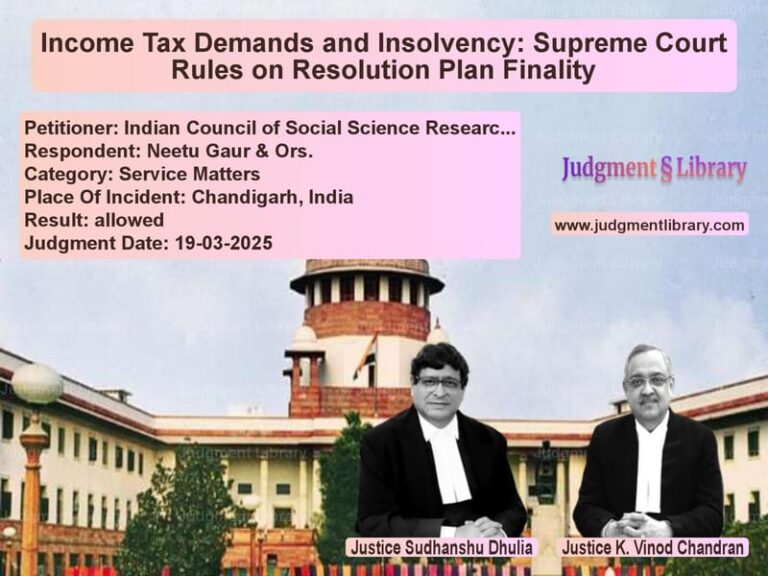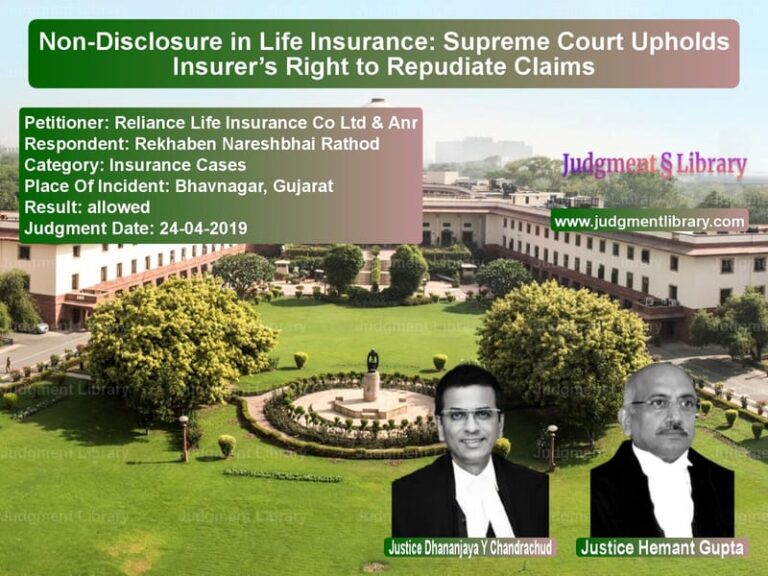DLF Ltd Ordered to Compensate Buyer: Supreme Court Ruling on Unfair Trade Practices
The case of Sudha Gupta vs. DLF Ltd. is a significant legal battle concerning unfair trade practices and the rights of homebuyers. The dispute revolved around the forfeiture of a substantial amount by DLF Ltd. after the cancellation of a plot allotment due to non-payment by the appellant. The Supreme Court’s ruling addressed key aspects of contractual obligations, forfeiture clauses, and the principles of natural justice in commercial transactions.
Background of the Case
The appellant, Sudha Gupta, had applied for the allotment of a plot in DLF Qutab Enclave, Phase IV, Gurgaon, on October 3, 1991, and paid an initial amount of Rs. 1,00,800. A Plot Buyer’s Agreement was signed on January 7, 1992, confirming the allotment of a 298.98 sq. meter plot at the rate of Rs. 2093 per sq. meter. The agreement also required the payment of various additional charges, including External Development Charges, Preferential Location Charges, and other fees.
The total amount payable was approximately Rs. 8,83,916, whereas the appellant claimed it was Rs. 8,11,600 due to a dispute over Preferential Location Charges of Rs. 71,516.
Cancellation of Allotment
Sudha Gupta made payments amounting to Rs. 4,89,800 in several installments but later defaulted. DLF Ltd. issued multiple reminders, and despite extensions, the appellant failed to clear overdue payments. Consequently, the allotment was canceled on June 2, 1993. DLF Ltd. deducted Rs. 1,55,105 as forfeiture and issued a refund of Rs. 3,34,695, which was initially unclaimed by the appellant.
Legal Battle
The appellant challenged the forfeiture, seeking possession of the plot, the execution of a sale deed, and additional compensation for financial loss and mental agony. The Competition Appellate Tribunal (Appellate Tribunal) ruled in favor of refunding the deducted amount with 9% interest but denied possession of the plot, citing a previous Supreme Court ruling in Ghaziabad Development Authority vs. Ved Prakash Aggarwal (2008).
Arguments by the Petitioner (Sudha Gupta)
- The forfeiture of Rs. 1,55,105 was arbitrary and amounted to an unfair trade practice.
- DLF Ltd. acted in bad faith, as the cancellation of the allotment coincided with a surge in property prices, indicating an intent to resell at a higher price.
- The appellant was not provided adequate notice before the forfeiture, violating the principles of natural justice.
- The Tribunal erred in denying specific performance (possession and execution of the sale deed) despite clear contractual obligations.
Arguments by the Respondent (DLF Ltd.)
- The appellant failed to comply with the payment schedule, defaulting despite multiple extensions.
- The cancellation of allotment was as per the terms of the Plot Buyer’s Agreement.
- The Tribunal had correctly held that specific performance could not be enforced under the Monopolies and Restrictive Trade Practices (MRTP) Act.
- The refund issued was fair, as the deductions were legitimate per the agreement.
Supreme Court’s Analysis and Judgment
The Supreme Court reviewed the facts and found significant lapses on both sides. While acknowledging the appellant’s failure to adhere to the payment schedule, the Court was critical of DLF Ltd.’s handling of the forfeiture.
- “The first respondent (DLF Ltd.) was anxious to cancel the allotment as the prices had substantially increased.”
- “The forfeiture of Rs. 1,55,105 by the first respondent was not correct and in accordance with the law laid down by this Court in Kailash Nath Associates vs. DDA and Another (2015).”
- “The appellant was a persistent defaulter, but the first respondent had also acted unfairly by withholding critical documents related to the payment schedule.”
The Court ruled that while specific performance could not be granted due to the resale of the plot, the appellant was entitled to compensation.
Final Judgment
The Supreme Court ordered DLF Ltd. to:
- Refund the forfeited amount of Rs. 1,55,105.
- Pay a total compensation of Rs. 30 lakhs to the appellant within six weeks.
- In case of non-payment within the stipulated time, an interest rate of 12% per annum would apply.
Significance of the Judgment
This ruling reinforces that:
- Forfeiture clauses must be exercised fairly and in good faith.
- Developers cannot arbitrarily cancel allotments for financial gain.
- Buyers have legal recourse even in cases where specific performance is not possible.
Conclusion
The Supreme Court’s decision in Sudha Gupta vs. DLF Ltd. upholds consumer rights in property transactions, ensuring that contractual fairness prevails over commercial interests. The case serves as a precedent for homebuyers facing similar disputes, emphasizing that legal avenues exist to challenge unfair trade practices in the real estate sector.
Petitioner Name: Sudha Gupta.Respondent Name: DLF Ltd..Judgment By: Justice Ranjan Gogoi, Justice L. Nageswara Rao, Justice Sanjiv Khanna.Place Of Incident: Gurgaon, Haryana.Judgment Date: 07-03-2019.
Don’t miss out on the full details! Download the complete judgment in PDF format below and gain valuable insights instantly!
Download Judgment: Sudha Gupta vs DLF Ltd. Supreme Court of India Judgment Dated 07-03-2019.pdf
Direct Downlaod Judgment: Direct downlaod this Judgment
See all petitions in Contract Disputes
See all petitions in Property Disputes
See all petitions in Consumer Rights
See all petitions in Damages and Compensation
See all petitions in Judgment by Ranjan Gogoi
See all petitions in Judgment by L. Nageswara Rao
See all petitions in Judgment by Sanjiv Khanna
See all petitions in allowed
See all petitions in Modified
See all petitions in supreme court of India judgments March 2019
See all petitions in 2019 judgments
See all posts in Civil Cases Category
See all allowed petitions in Civil Cases Category
See all Dismissed petitions in Civil Cases Category
See all partially allowed petitions in Civil Cases Category

